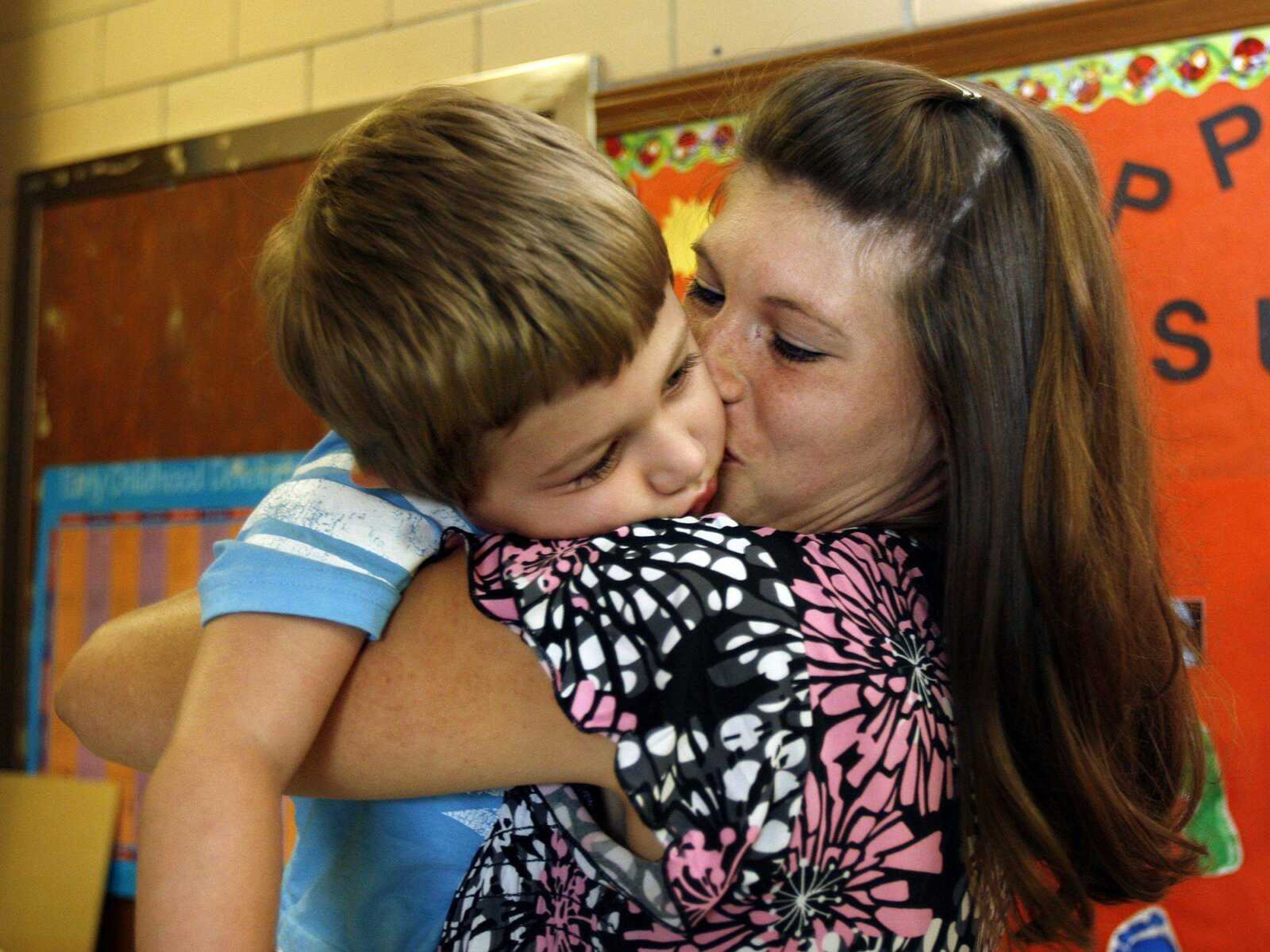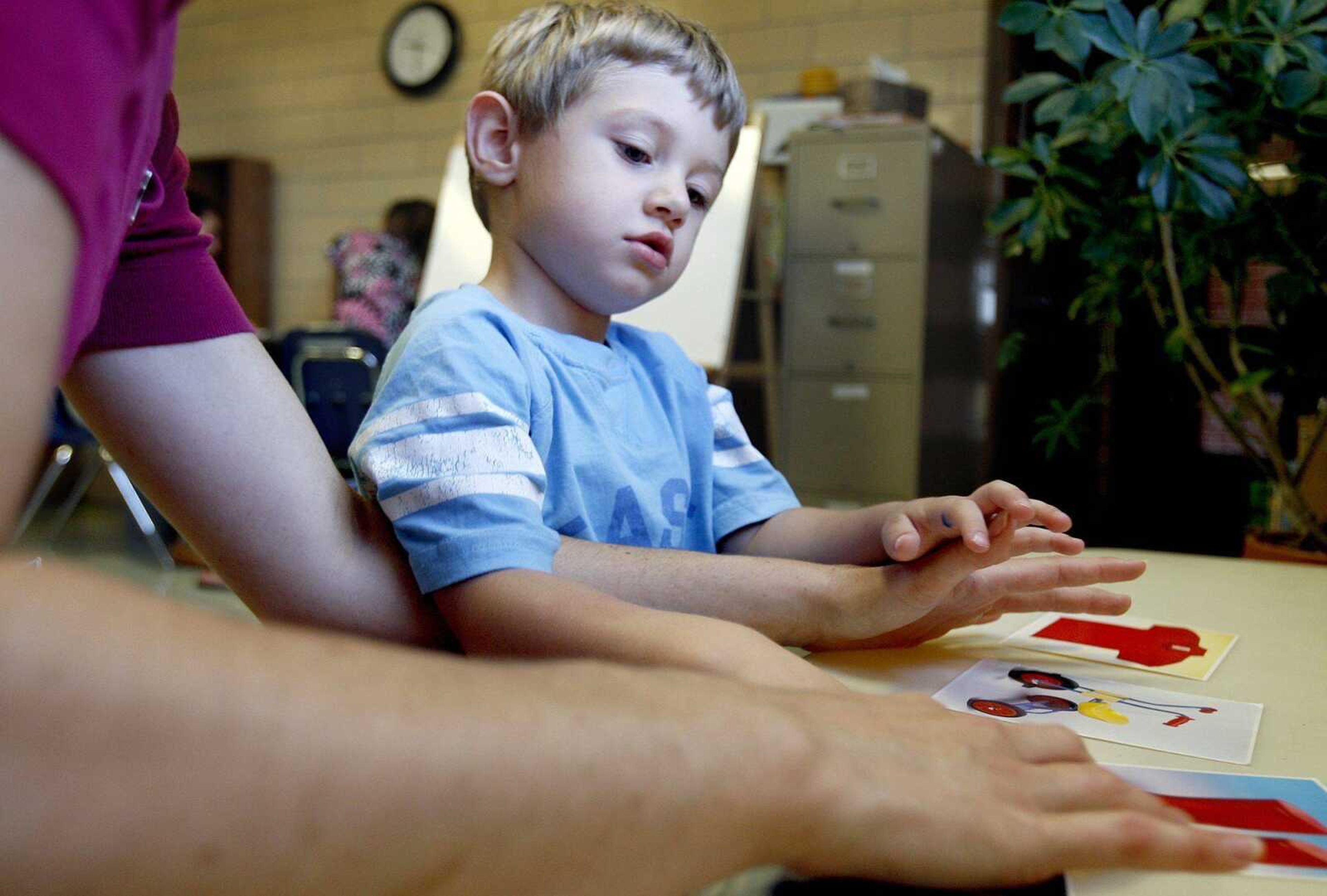Cape autism center aims to speed diagnosis of children; parents want more services
The Southeast Missouri State University Autism Center for Diagnosis and Treatment, expected to open in December, is getting mixed reactions from parents of children with autism. While the parents are excited that new services are coming to the region, some are wary of expecting too much from the new center...
The Southeast Missouri State University Autism Center for Diagnosis and Treatment, expected to open in December, is getting mixed reactions from parents of children with autism. While the parents are excited that new services are coming to the region, some are wary of expecting too much from the new center.
Connie Hebert, director of the autism center, said its main goal is to decrease the time families must wait before their child is given an assessment for autism. This was one of the terms of its funding. The wait for diagnosis is typically eight months or more and requires travel to diagnostic centers in St. Louis, Memphis, Tenn., or Columbia, Mo.
The autism center will house the regional office of the Southeast Missouri Project of the Judevine Center for Autism, an organization that works with families to provide in-home therapy. Judevine also works with schools to develop individualized plans for children with autism and helps teenagers and adults find ways to participate in the community. The Tailor Institute, a local organization that helps people with high-functioning autism develop techniques for living and working independently, will also move to the new center.
Through various university departments, the center will offer some treatment services, including applied behavior analysis. This approach uses a rewards system and relies on statistics to encourage desired behaviors and discourage others. The center will also provide group sessions for social skills development and training for siblings and parents.
In the fall the university will launch a program to prepare participants for the exam to become board-certified associate behavior analysts. Dr. Sharo Shafaie, professor and coordinator of the Southeast Missouri State University childhood development program, said this will be the third such program in the state. There are currently only two board-certified behavior analysts serving Southeast Missouri.

Students preparing to become teachers will be able to enroll in another certificate program and gain expertise in working with people with autism. University students will also have opportunities to work with diagnosticians on their assessments.
Myra Bax, director of the Judevine Southeast Missouri Project, said she has spoken to a number of families who are excited about the autism center. She said having several organizations under the same roof will enable them to collaborate more effectively.
But Bax acknowledged the center cannot provide everything that every person with autism needs. Sabina Childers of Jackson said the center may not offer anything new for her 10-year-old son, Larry, who has autism.
"I am so glad it is here," she said. "But we're always going to want more. There's never going to be enough."
Childers said the autism center will be more helpful to families with infants and toddlers than to families with older children. The lack of extracurricular activities for school-age children with autism is a common concern among parents. Childers said it is difficult to take Larry certain places, as he is uncomfortable in many social situations.
"We kind of hoped there would be a little bit more with the center starting out. And we're going to have to wait just a little bit longer for things to kind of come into place," Childers said.
Childers has begun the not-for-profit organization Inertia Inc. to fill the void she sees in activities for children with autism. By next spring, her organization will open an art and recreation center designed to support people with autism and other disabilities. She said she hopes it will be a homelike atmosphere where participants and their families feel at ease. Childers said the autism center and the Tailor Institute are both open to providing support for the art and recreation center.
Whitney McFall and her husband, Travis, of Oak Ridge received an unusually fast assessment for their 3-year-old son Gavin, who was diagnosed with autism about six months ago. They were on the waiting list for just a few months before receiving a diagnosis through a center in St. Louis. Since then, they have been placed on waiting lists for virtually every service they have requested for their son.
"I just think that there should be more resources available without having to be on waiting lists for so long," McFall said. "It gets frustrating."
Gavin was provided with applied behavior analysis through the Missouri First Steps program. That service ended a day before his third birthday, after which individual school districts are responsible for children with special needs. Gavin receives speech and occupational therapies and a program based on applied behavior analysis through his school in Oak Ridge. The McFalls pay out-of-pocket for additional speech therapy, one of many services not covered by insurance.
Gavin was recently accepted for care from the Judevine Center for Autism.
Hebert said she is excited about what the center will offer, but limited funding and resources will prevent the autism center from immediately providing all the services families need. She cited extracurricular activities and an early childhood education program as two services parents want that are beyond the capacity of the center. Hebert said the center will look to increase its offerings as time goes on.
"I certainly feel their pain and know that this is just one step," she said.
astephens@semissourian.com
388-3654
Pertinent address:
The Autism Center for Diagnosis and Treatment is temporarily located in the Southeast Innovation Center at 920 Broadway Suite 104, Cape Girardeau, MO.
Once construction is complete, the center will move to 611 N. Fountain St., Cape Girardeau, MO.
Connect with the Southeast Missourian Newsroom:
For corrections to this story or other insights for the editor, click here. To submit a letter to the editor, click here. To learn about the Southeast Missourian’s AI Policy, click here.










